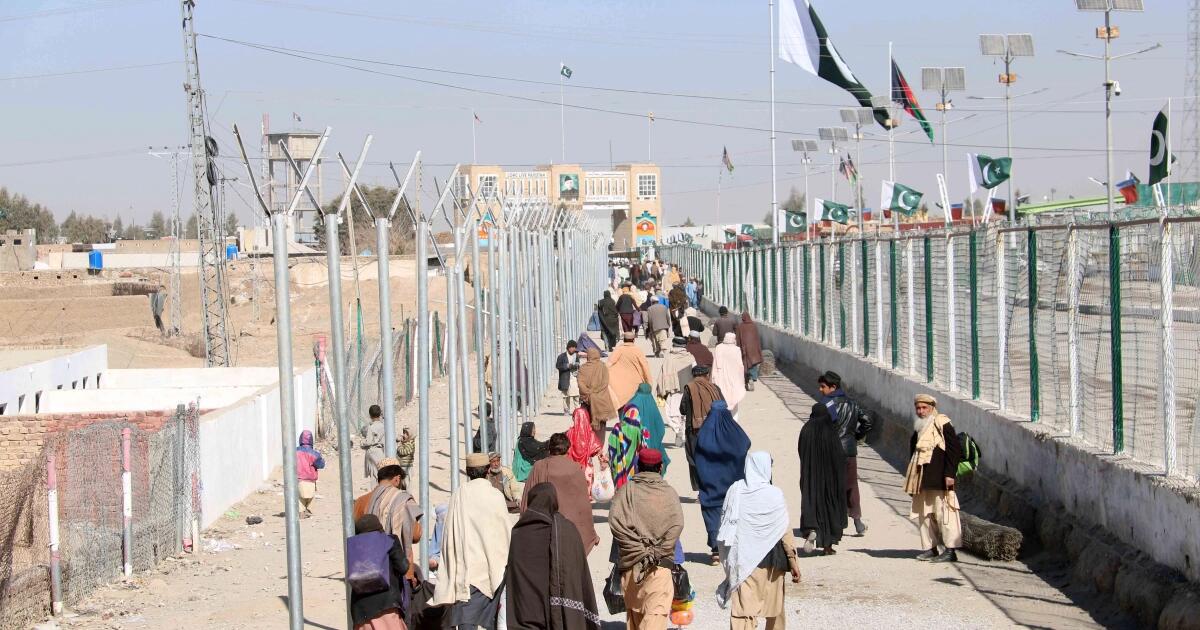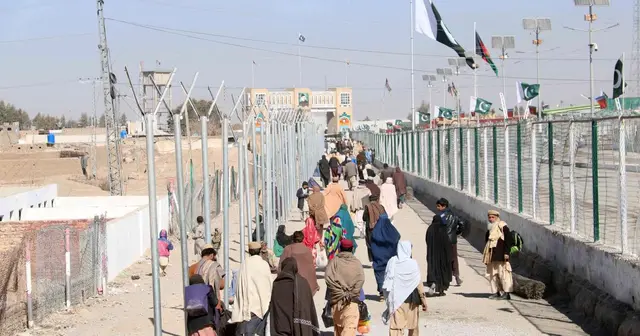Author: Prof. Engr. Zamir Ahmed Awan, Sinologist (ex-Diplomat), Editor, Analyst, Non-Resident Fellow of CCG (Center for China and Globalization), National University of Sciences and Technology (NUST), Islamabad, Pakistan. (E-mail: [email protected]).
Pakistan shares mountains, rivers, history, ethnicity, religion, traditions, cultures, languages, and a long border. The relations between the two nations are natural and based on commonalities. However, Afghanistan is in a state of war for the last four decades, the war was imposed on Afghanistan, and the country is facing prolonged unrest and instability.
Being the first doos step neighbor, the situation in Afghanistan has an adverse impact on Pakistan. Pakistan has suffered heavy loss of human lives up to 80,000 and an estimated economic loss of approximately US dollars 250 billion. The gun culture and drug culture were an additional gift of Afghan instability. Terrorism, extremism, and intolerance were a phenomenon of the Afghan war.
Based on ground facts, it is only Pakistan that understands the Afghan issue very well. And Pakistan is the only country that can feel the suffering of the Afghan people. Pakistan has been hosting Afghan refugees for almost four decades, at peak, they were up to 5 million, and currently, they are up to three million. Pakistan is the only country, who wishes an early end to Afghan suffering. A stable Afghanistan is vital for Pakistan and a prerequisite for regional peace, stability, and development.
Pakistan has been always playing a positive role in settling the Afghan issue and has been very active in a political solution, which should be Afghan-origin, Afghan-led, and Afghan-owned. Pakistan supports all peace initiatives and has played a vital role in bringing the Taliban to a negotiating table upon request from the US. The US administration and many world leaders have been acknowledging and praising Pakistan’s positive role.

However, since India took the presidency of the United Nations Security Council, on the 1st of August 2021 and in a haphazard manner called a meeting on the 6th of August in Afghanistan. The meeting was not planned well, and the agenda was also not shared with the members. Pakistan was deliberately kept out of the meeting and the Afghan representative was fed with anti-Pakistan sentiments to utter in the UNSC meeting. It seems India has planned to use its position as the president of UNSC to bash Pakistan and defame Pakistan. The misinformation and distorted image of Pakistan was presented. It exposed Indian mal intentions. Therefore, it is requested to evaluate the situation and cancel the Indian presidency of a prestigious institution of the UN. The UNSC may lose its reputation if India uses it against Pakistan and behave discriminately. All members of the UNSC are appealed to evaluate the situation and re-assess the Indian presidency.
Pakistan has been closely followed discussion at the United Nations Security Council on the situation in Afghanistan. And reacted “It is a matter of deep regret that, as the closest neighbor of Afghanistan, whose contribution in the ongoing peace process has been recognized by the international community, Pakistan’s request to the President of the Security Council to address the Council’s session and present its perspective on the Afghan peace process and the way forward was not acceded to. On the other hand, the Council’s platform was made available to enable the peddling of a false narrative against Pakistan.”
In his statement at the UNSC, Afghanistan’s representative propagated disinformation and leveled baseless allegations against Pakistan intending to mislead the international community. Pakistan categorically rejects these accusations. Pakistan’s position on the issue has been shared with Security Council members.
Pakistan has repeatedly shared its perspective on peace and stability in unambiguous terms with the international community. We emphatically reiterate that there is no military solution to the conflict in Afghanistan and that a negotiated political settlement is the only way forward for durable peace and security in the country. Towards that end, Pakistan’s constructive efforts with the support of the international community led to achieving important milestones in the Doha peace process including the U.S.-Taliban Peace Agreement and the subsequent commencement of Intra-Afghan Negotiations.
As the U.S. and NATO forces are near completion of their withdrawal from Afghanistan, we are seriously concerned about the growing violence in Afghanistan and lack of substantive progress in the Intra-Afghan Negotiations. Expressing deep concern at the reports of human rights violations, we urge all sides to ensure full respect for human rights and international humanitarian law.
Pakistan calls upon all warring sides in Afghanistan to eschew the military approach, engage constructively in negotiations, and work together to secure an inclusive, broad-based, and comprehensive political settlement. It is equally important to remain cognisant of spoilers, both within and outside, who do not wish to see the return of peace and stability in Afghanistan and the region.
We also urge the Government of Afghanistan, once again, to refrain from the blame game and engage with Pakistan in a meaningful manner to address the challenges to peace, security, and progress in the region. In this regard, we reiterate the need for effective use of bilateral institutional arrangements such as the Afghanistan Pakistan Action Plan for Peace and Solidarity.
Pakistan supported all peace initiatives on Afghanistan, either Moscow initiatives, Turkeys, China, or The US initiatives, as long as, the objective is to explore a political settlement of Afghanistan, Pakistan was always part of all these initiatives. On 11 of August, Pakistan will participate in a peace dialogue in Doha, among the US, Russia, China, Turkey, and the Taliban. It is hoped that a sustainable solution will be the outcome and a political settlement will be sought out. War is no longer an option, bloodshed is no longer desired.
(ASIA PACIFIC DAILY)
 简体中文
简体中文

